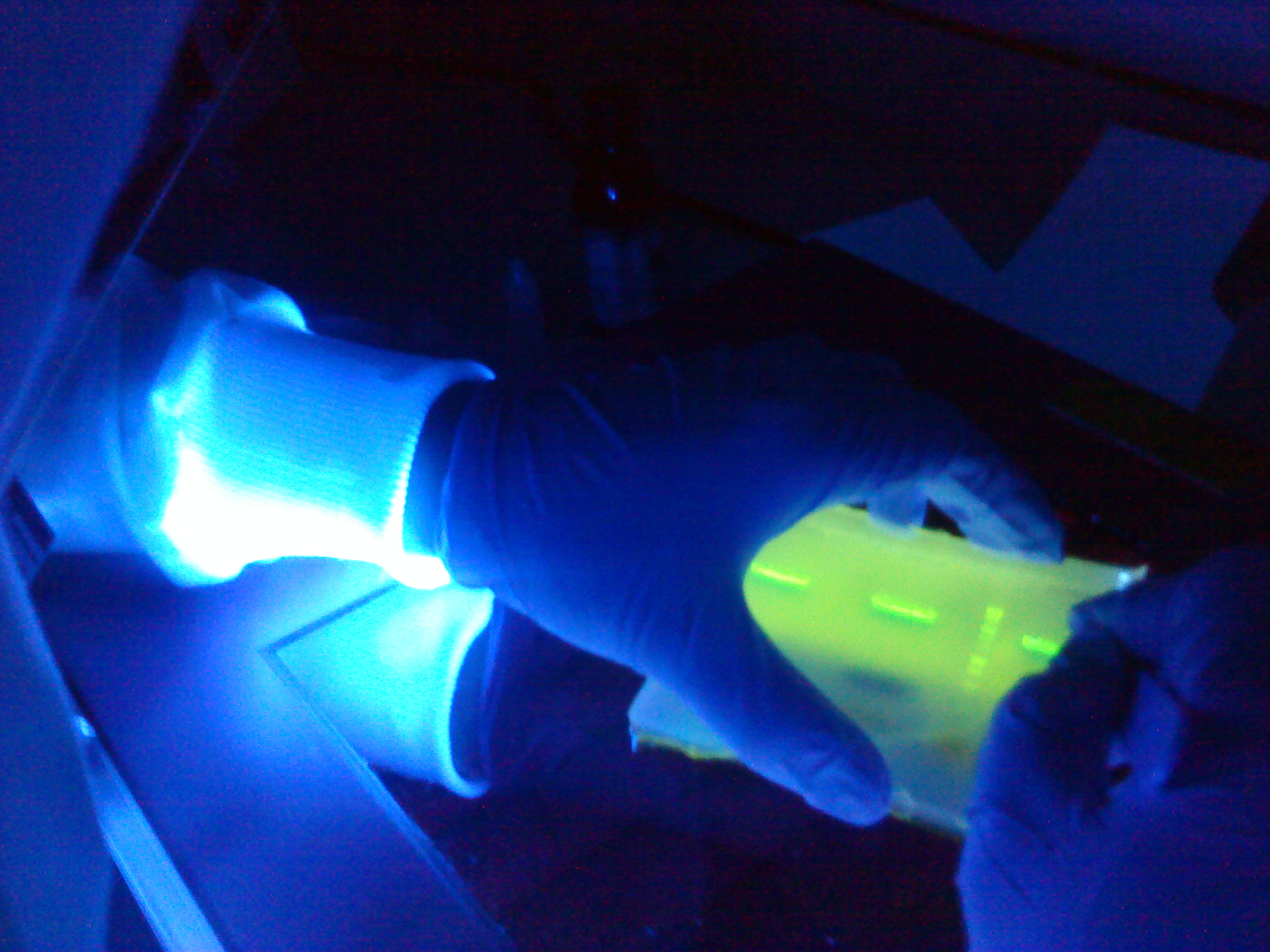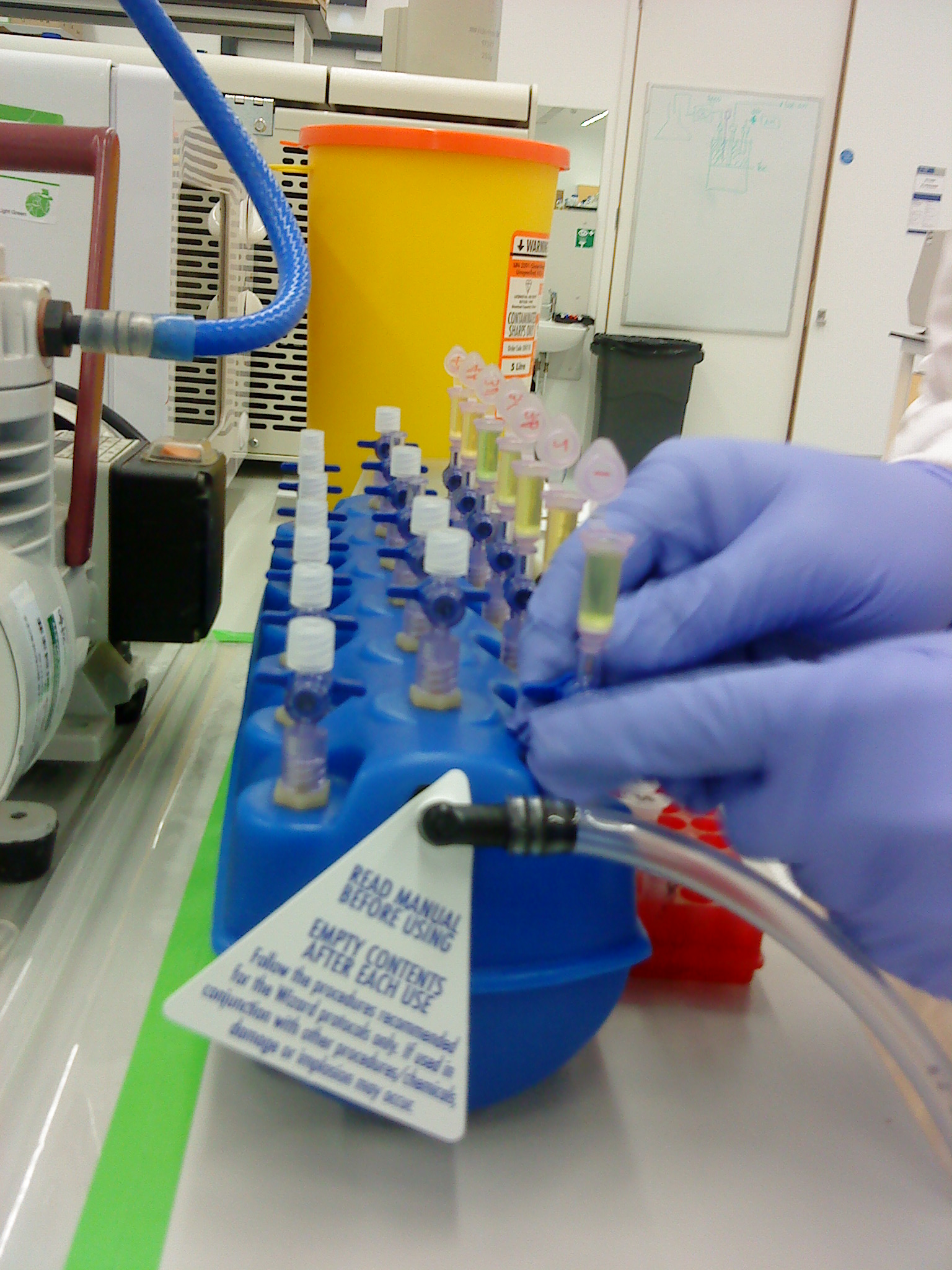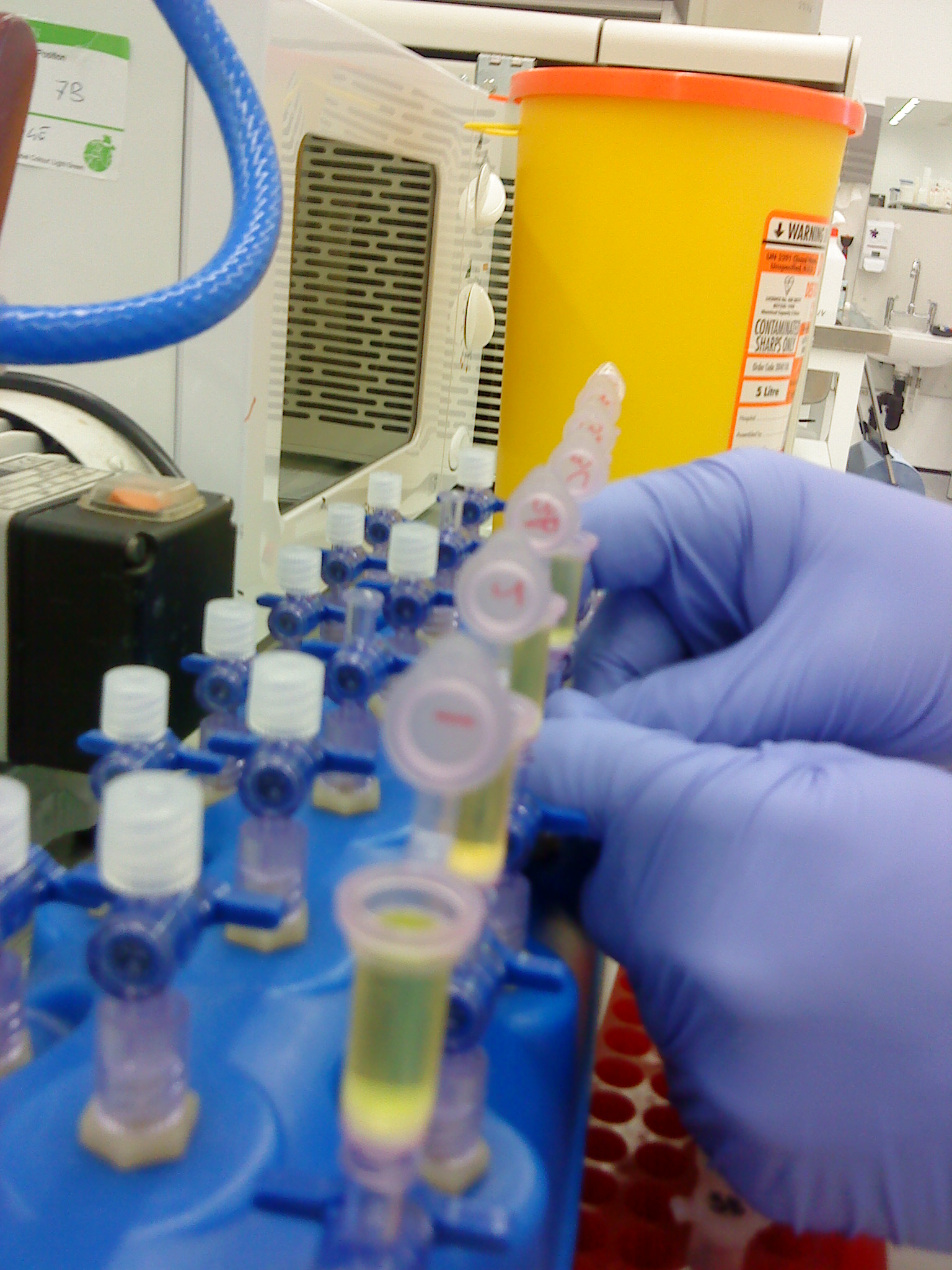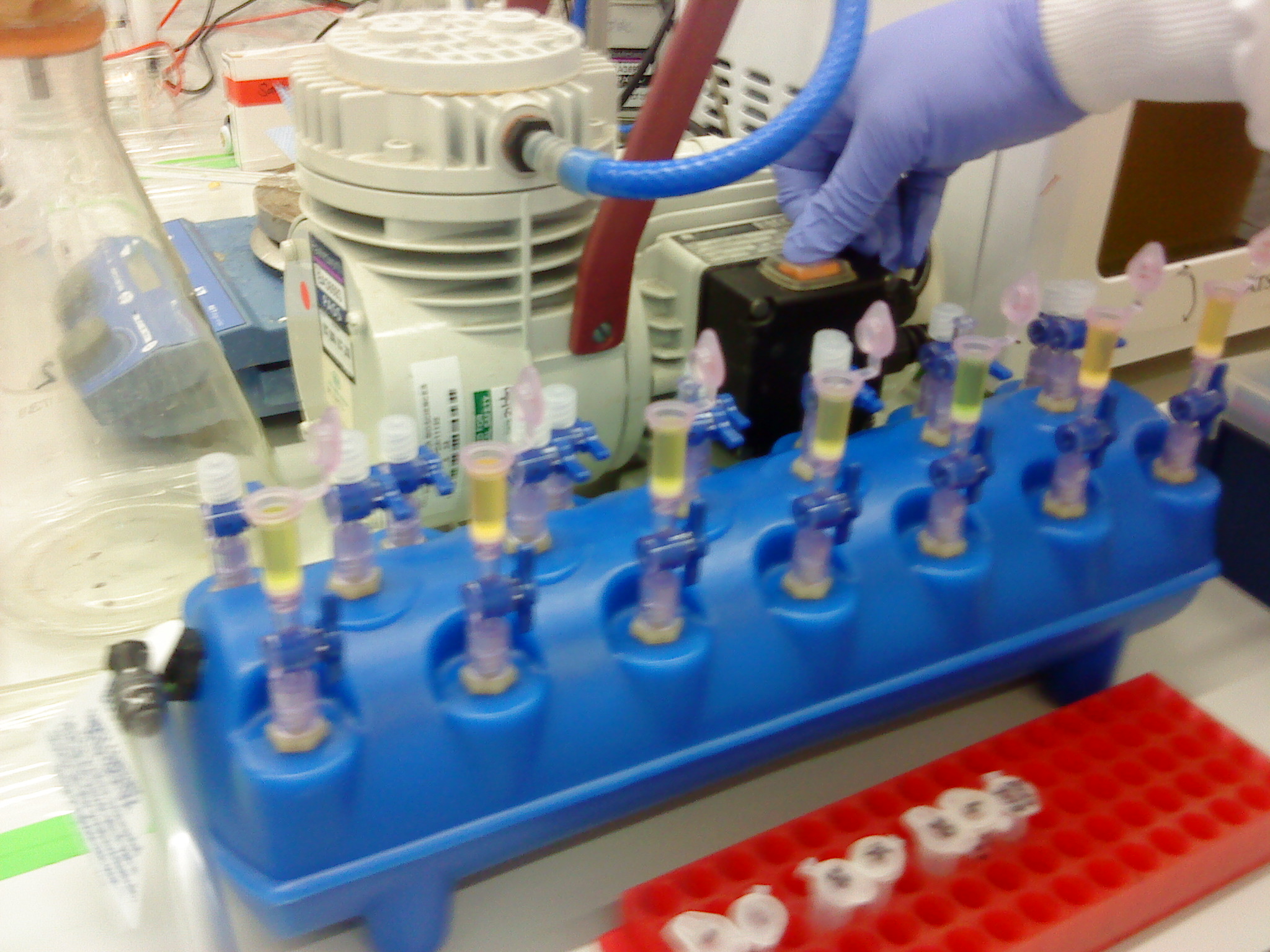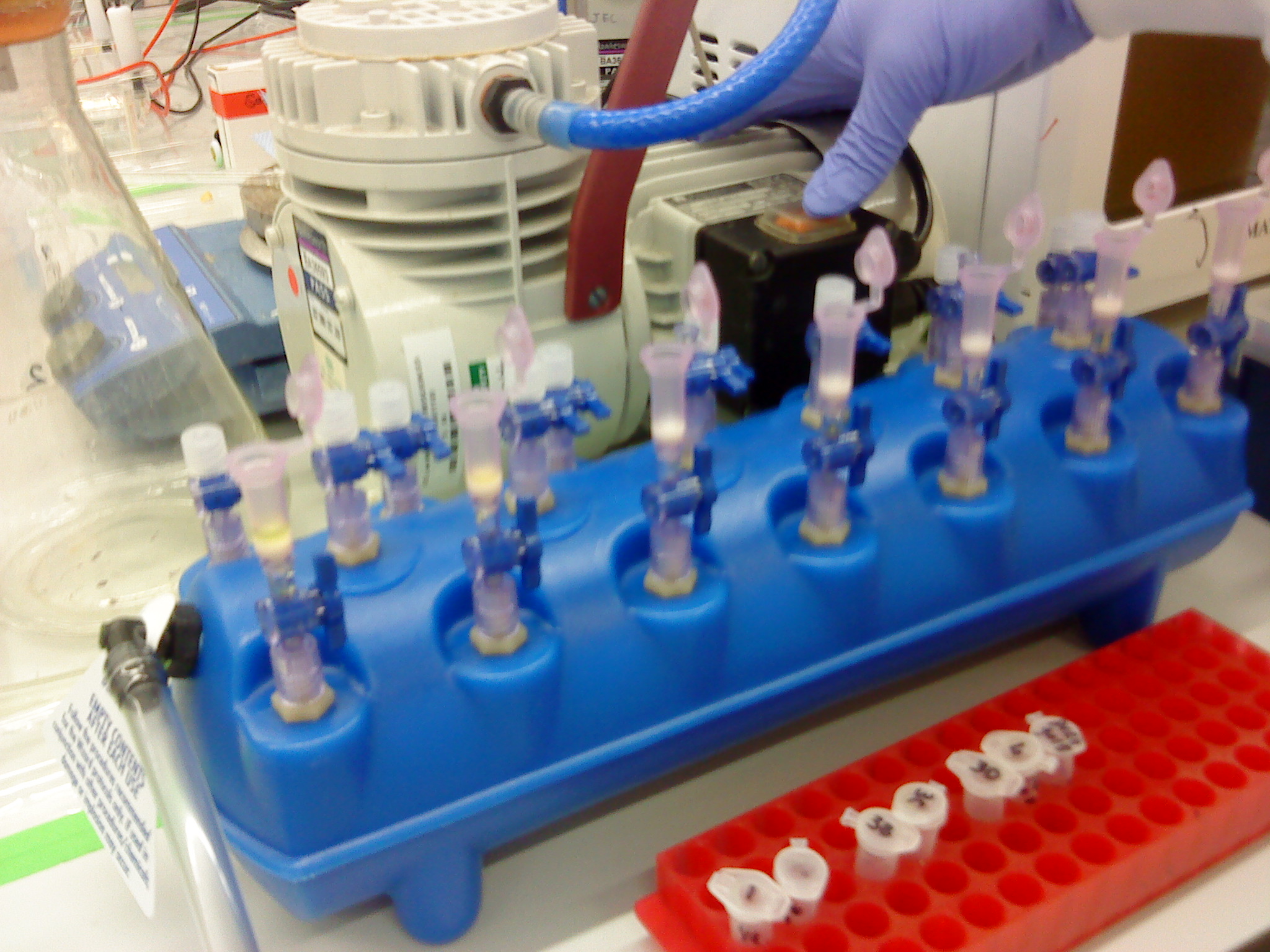Team:Newcastle/13 August 2010
From 2010.igem.org

| |||||||||||||
| |||||||||||||
Contents |
rocF BioBrick miniprep
Aims
The aim of this experiment is to extract pSB1C3 containing the rocF BioBrick from E. coli DH5α cells with the help of Qiagen miniprep kit and confirming the extraction with the help of a nanodrop experiment.
Materials and Protocol
Please refer to: Minipreps for Qiagen miniprep protocol, Nanodrop Spectrophotometer for nanodrop protocol.
Result
| pSB1C3 with rocF BioBrick (no. 1) | pSB1C3 with rocF BioBrick (no. 2) | pSB1C3 with rocF BioBrick (no. 3) | pSB1C3 with rocF BioBrick (no. 4) | pSB1C3 with rocF BioBrick (no. 5) | pSB1C3 with rocF BioBrick (no. 6) |
|---|---|---|---|---|---|
| 90.3 µl/ml | 64.4 µl/ml | 286.9 µl/ml | 87.1 µl/ml | 780.5 µl/ml | 59.1 µl/ml |
Table 1: Nanodrop spectrophotometer experiment result. Table represents the amount of plasmid present in µl/ml quantity.
Discussion
The tube containing plasmid pSB1C3 with rocF BioBrick (no.3) has the highest concentration with a high purity value.
Conclusion
Overall the plasmid miniprep was successful and we would be using Tube no. 3 containing plasmid pSB1C3 with rocF BioBrick.
rocF BioBrick gel electrophoresis
Aims
The aim of this experiment is to run gel electrophoresis for the extracted plasmid pSB1C3 containing rocF BioBrick.
Materials and Protocol
Please refer to: Gel electrophoresis for gel electrophoresis protocol.
Result
Figure 1: Gel electrophoresis of the miniprep products required for the confirmation of Gibson procedure.
- Lane 1: 1 kb DNA ladder
- Lane 2: Plasmid Vector (pSB1C3)
- Lane 3: Promoter and RBS (pVeg-SpoVG)
- Lane 4: spaIFEG Gene Cluster
- Lane 5: Double terminator
- Lane 6: 100 bp DNA ladder
Expect band to be 3195bp.
Discussion
wrong result.. instead got pSB1C3 with RFP insert (must have accidentally extracted it) and pSB1C3 without insert, re-circularised (the ligase in the Gibson reaction mix must have joined the BioBrick prefix and suffix).
Subtilin Immunity BioBrick
Aims
We plan to select three spaIFEG gene (part 3) PCR tubes, using Tms 51°C, 56°C and 61°C (we had confirmed it successful from yesterday's gel electrophoresis - please refer to the gel electrophoresis from yesterday). Gel extraction will then be performed, along with Plasmid Vector (part 1), Promoter & RBS (part 2) and Double terminator (part 4). Finally, NanoDrop will be performed on each of these four parts.
Materials and protocol
Please refer to the gel electrophoresis, gel extraction and NanoDrop protocols. Instead of using the centrifuge to bind the DNA from our sample to the QIAquick column, a vacuum manifold was used instead. It is the first time it had been used. The advantage of this was that the extraction could be carried out much faster as we had 7 samples. (photos)
Results
The results from the Nanodrop Spectrophotometer of the four parts are as follows:
- Vector - 21.3 ng/μl
- Promoter - 28.8 ng/μl
- Coding sequence - 27.0 ng/μl
- Terminator - 27.5 ng/μl
Discussion
We chose the three spaIFEG gene (part 3) PCR tubes, using Tms 51°C, 56°C and 61°C because they were the mid-ranged Tms. Gel extraction was then performed, by firstly cutting the gels under U.V light, and then apply the protocol for completion.
Conclusion
The results from the NanoDrop reading suggests that our results were positive, which indicates that we have successfully extracted all the parts required for the Subtilin Immunity BioBrick. Gibson cloning method will be used next week.
Go back to our main Lab book page
 
|
 "
"

